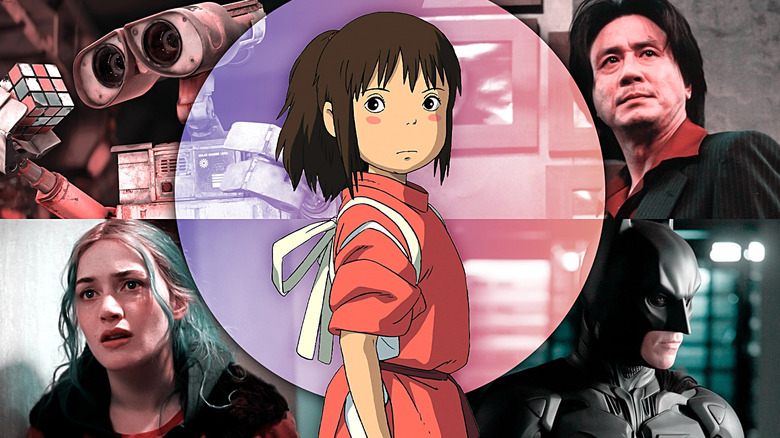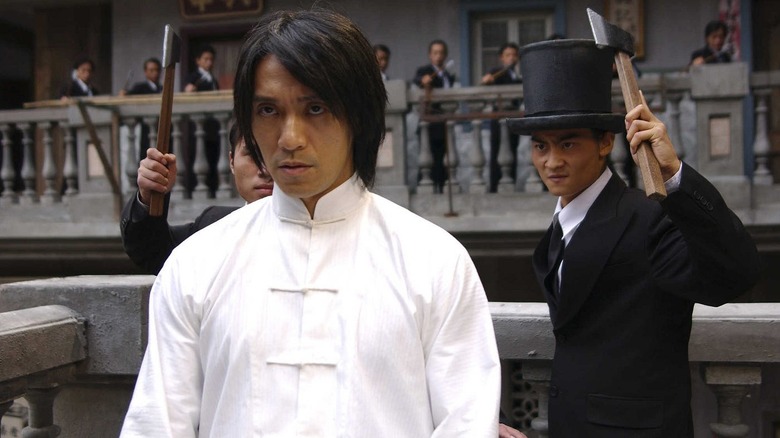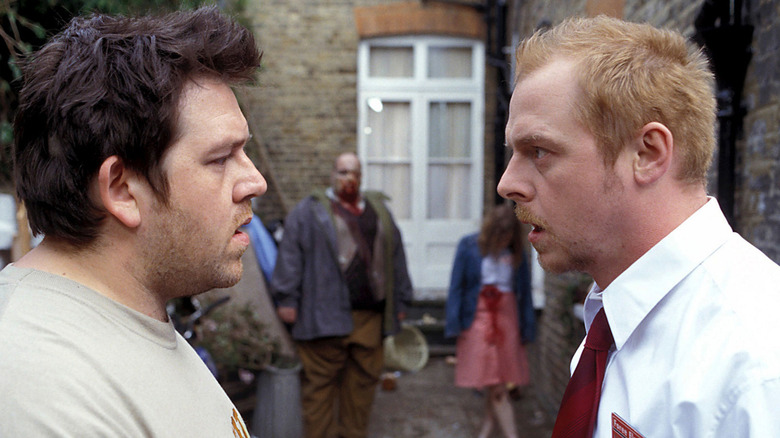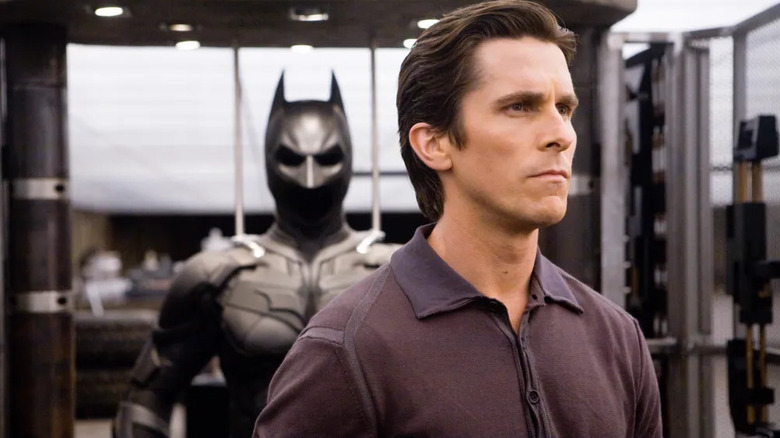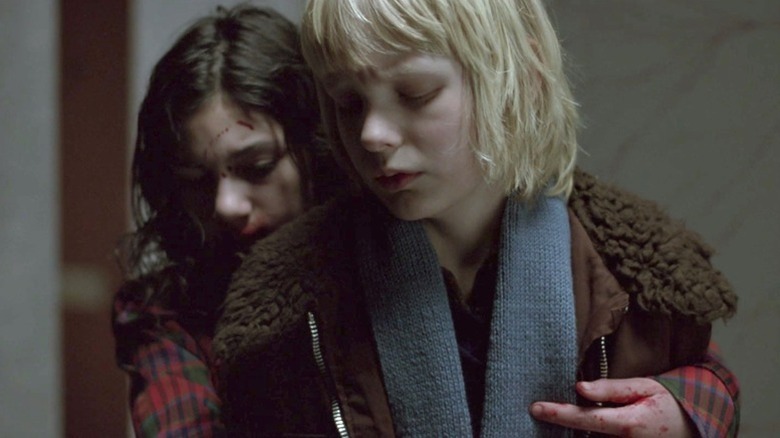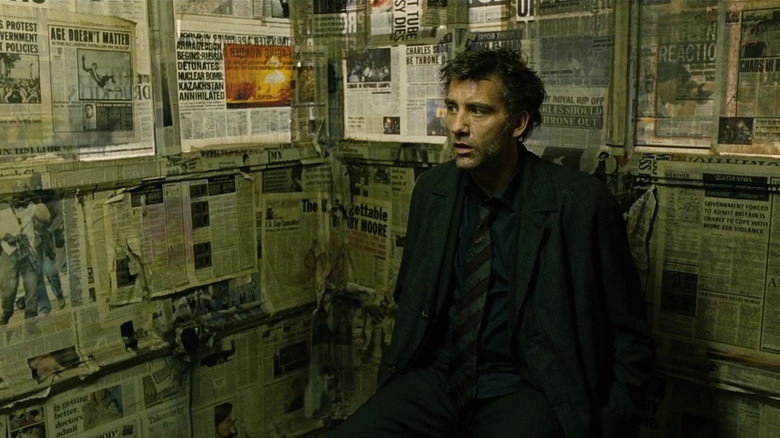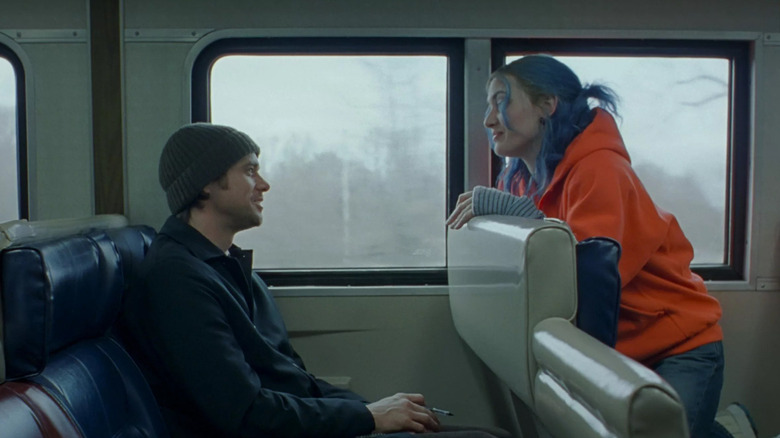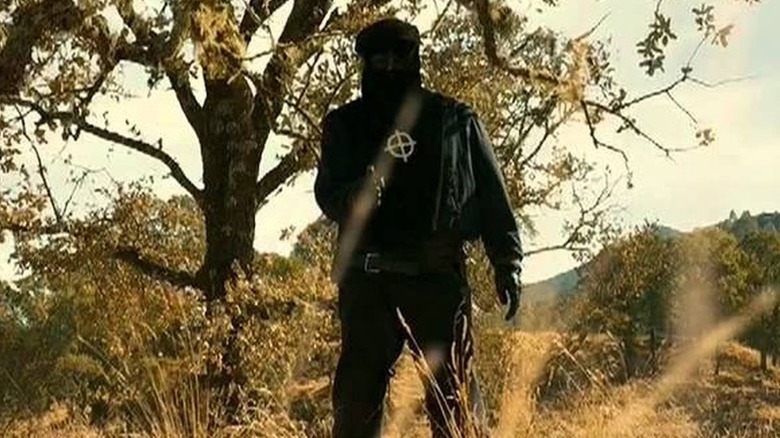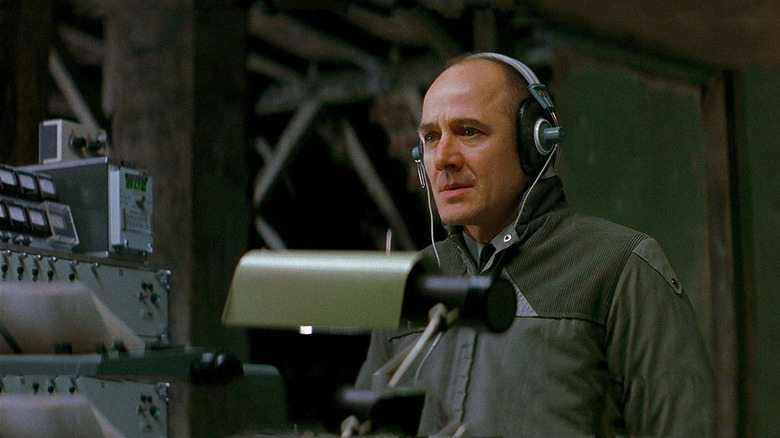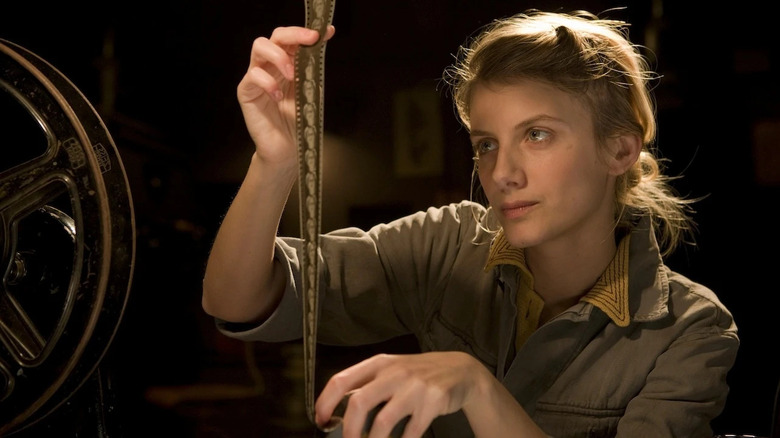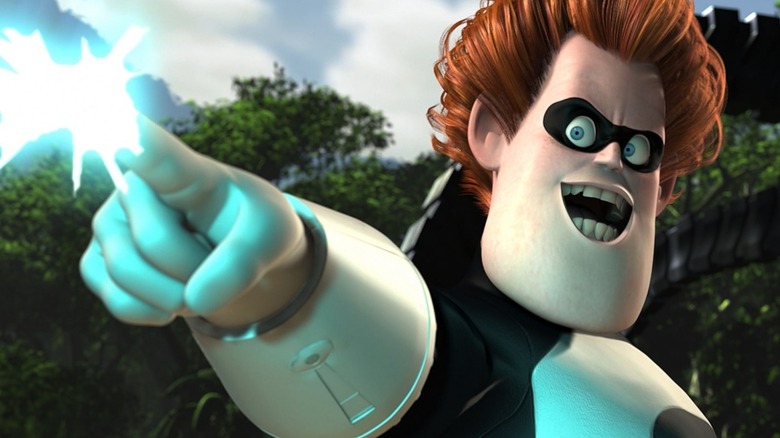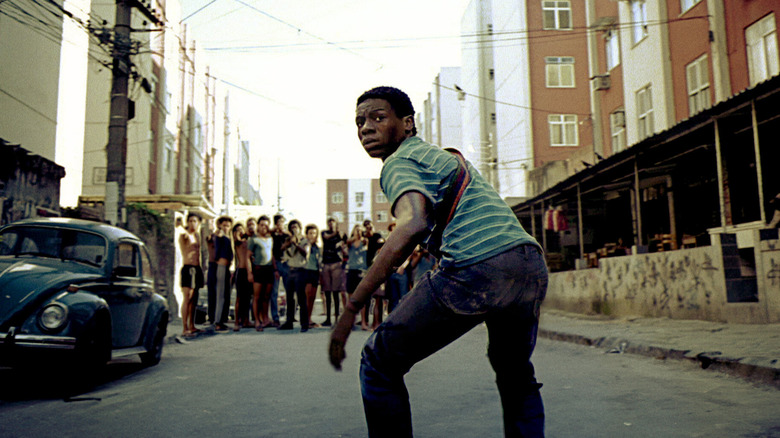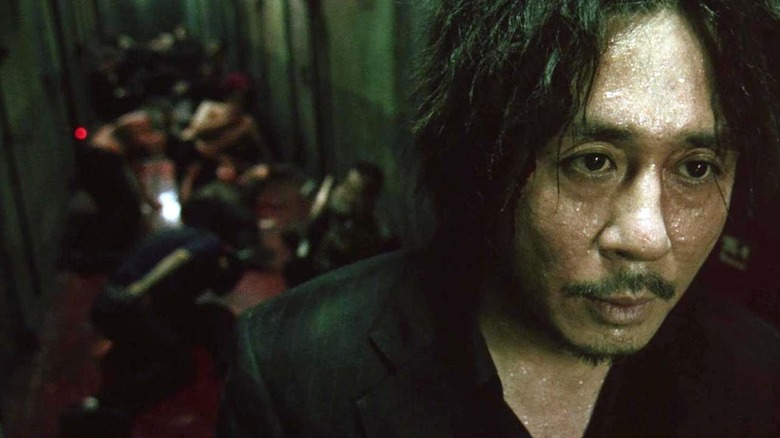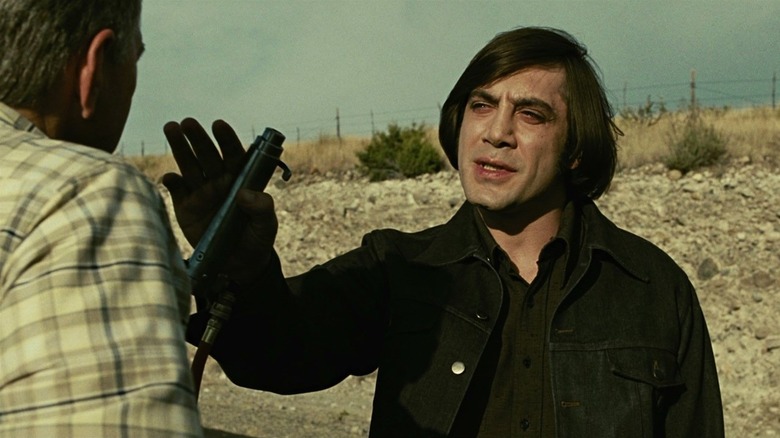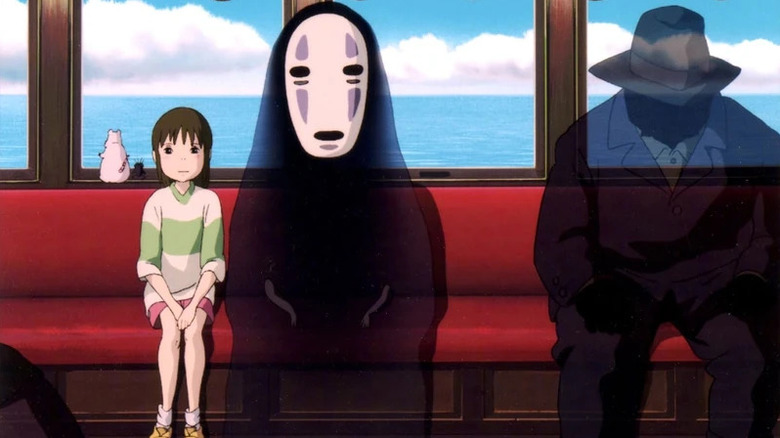The 15 Best Movies Of The 2000s, Ranked
The dawn of the 21st century was one borne of anxiety, from Y2K fears surrounding the growing dependence on technology to geopolitical instability and extremism. Those sensibilities informed a lot of the cinematic output of the decade, while the increasingly globalized industry opened doors for international movies to be enjoyed by wider audiences. So many of the memorable movies from the decade revolved around paranoia and morally compromised protagonists, each nuanced in their own way. At the same time, a lot of 2000s movies still maintained a robust sense of fun, leaning into dark comedy or outright slapstick.
Simply put, not only were there a lot of great movies in the 2000s but a wide variety of impressive films released during the decade. Whether it was international movies gaining greater recognition or auteur-driven blockbusters, it was a great period for inventive cinema.
Here are the 15 best movies of the 2000s, ranked and ready for you to check out or revisit.
15. Kung Fu Hustle
After previously blending slapstick comedy with soccer and martial arts in 2001's "Shaolin Soccer," Hong Kong filmmaker Stephen Chow doubled down on the action comedy for 2004's "Kung Fu Hustle." The movie is set in 1940s Shanghai, with the city ruled by the vicious Axe Gang, and aspiring criminals Sing (Chow) and Bone (Lam Chi-chung) looking to join the syndicate. This occurs as the Axe Gang comes into conflict with the residents of Pigsty Alley, who are expert martial artists. As the conflict escalates, Sing must decide whose side he wants to take.
Eschewing soccer to focus on the martial arts and comedy, "Kung Fu Hustle" represents Chow at his creative apex, crafting both thrilling fight scenes and goofy gags. The movie's influences, ranging from Bruce Lee to "The Shining," are proudly showcased while Chow ups the emotional investment. Whenever a bombastic set piece kicks into gear, there is an underlying sense of joy and triumph as the battle is joined. A beautiful film practically tailor-made for repeating viewing, "Kung Fu Hustle" is one of the best action comedies of the 21st century.
14. Shaun of the Dead
After working together on the British comedy series "Spaced," filmmaker Edgar Wright and actor and co-writer Simon Pegg teamed up for 2004's "Shaun of the Dead." Described as a zombie romantic comedy, the movie has slacker Shaun (Pegg) getting dumped by his girlfriend Liz (Kate Ashfield), inadvertently on the eve of a zombie outbreak. Along with his best friend Ed (Nick Frost), Shaun sets out to win Liz back and lead his loved ones to take shelter in their local pub. As they battle the undead, Shaun learns to make more of himself, albeit at a gruesome cost.
"Shaun of the Dead" is one of those rare horror comedies that masters the balance between the humor and the scares (and it became quite relevant and memeworthy in 2020). The movie is a pitch-perfect send-up of George A. Romero's genre-defining zombie movies, particularly 1978's "Dawn of the Dead," with the jokes landing even for those unfamiliar with those classics. At the same time, when the zombies strike en masse, the gory spectacle is on full display. The start of a fruitful cinematic partnership between Wright, Pegg, and Frost, "Shaun of the Dead" is a hilarious love letter to zombie cinema.
13. The Dark Knight
Though they dominate summer blockbuster season now, superhero movies didn't reach the $1 billion mark at the box office until 2008. It wasn't a Marvel Studios movie, but "The Dark Knight," the middle installment of Christopher Nolan's Batman trilogy, that led this distinction. The sequel to 2005's "Batman Begins," the movie introduces the Joker (Heath Ledger), who plunges Gotham City into chaos as Batman (Christian Bale) dismantles the mob. This leads to Batman and district attorney Harvey Dent (Aaron Eckhart) making harder moral decisions to keep Gotham safe, weighing heavily on both men.
Right from its opening bank heist, it's clear that "The Dark Knight" pulls off being more grounded, and also more ambitious, than its predecessor. The movie is essentially a solidly crafted crime drama, evoking "Heat," with its superhero elements elevating the scale and intensity of the action. Wwhile the ensemble cast around him is great, Ledger's Joker is singular in his scene-stealing performance as one of the most captivating cinematic villains in years. A triumph of the genre that has rarely been approached by other superhero movies since, "The Dark Knight" transformed comic book adaptations into indisputable art.
12. Let the Right One In
While vampire movies have seen a resurgence in recent years, one of the first movies to revive the sub-genre for the 21st century was 2008's "Let the Right One In." The Swedish film offers a more humanistic take on the familiar horror elements, focusing on the budding relationship between its main characters. The movie centers on Oskar (Kåre Hedebrant) a bullied boy who befriends his new neighbor Eli (Lina Leandersson). It's clear that Eli is not what she seems as bloody murders occur around town.
Like many effective vampire movies, "Let the Right One In" heavily revolves around themes of love, and to be sure, it's one of the best vampire movies ever made. There are plenty of gruesome thrills, but the emotional core of the story is really the dynamic between Oskar and Eli. The movie was remade in America in 2010, titled "Let Me In," with many of qualities translating over well as a testament to the strength of the story. One of the greatest movies to come out of Sweden in any decade, "Let the Right One In" is a supremely haunting chiller.
11. Children of Men
Mexican filmmaker Alfonso Cuarón crafted a taut dystopian sci-fi flick set in England in the near-future with 2006's "Children of Men." Set several decades into total infertility gripping humanity, civilization is rocked by wars and near collapse from the prolonged crisis. Theo Faron (Clive Owen), a cynical government worker, finds himself transporting a young refugee woman named Kee (Clare-Hope Ashitey). After learning that Kee is pregnant, Theo must defend her from those looking to kill or exploit the first human pregnancy in years.
With its on-the-run setup, "Children of Men" is a fast-paced tour of a crumbling society, with impressive action and a propulsive urgency. Cuarón's grounded setting and presentation of the movie keeps the focus on the stakes and makes the social commentary all the more clearly salient. But for all the frenetic set pieces, the movie never loses sight of its emotional core, beautifully realized by Owen and Ashitey. Though failing to connect with audiences during its initial release, "Children of Men" has improved immeasurably over time as a true classic.
10. Eternal Sunshine of the Spotless Mind
Memories are always a double-edged sword, especially looking to forget painful life moments like messy break-ups. The 2004 film "Eternal Sunshine of the Spotless Mind" presents a light science fiction premise, with technology available to erase selected memories for paying customers. After learning his ex-girlfriend Clementine Kruczynski (Kate Winslet) removed her memories of him, Joel Barish (Jim Carrey) opts to undergo the same procedure. However, while reliving his past with Clementine, Joel realizes he wants to remember her, mentally fighting back as his memories are undone.
Surreally presented by director Michel Gondry and cinematographer Ellen Kuras, "Eternal Sunshine of the Spotless Mind" is an appropriately dream-like experience. The haunting visuals behind Joel and Clementine's failed courtship, as they literally crumble around them, gives the movie an introspective and melancholic mood. The movie is also a great reminder of how fantastic a dramatic actor Carrey is, delivering what is arguably his best performance. A meditation on romantic decay and its lingering implications, "Eternal Sunshine of the Spotless Mind" breathes fresh life into the realm of romantic drama.
9. WALL-E
Like many of its American animated contemporaries, the majority of Pixar's projects are bright and flashy, while containing an enormous amount of heart. One particular standout from Pixar's already impressive filmography, however, eschews conventional dialogue for a significant portion of its runtime, relying on sound effects and light musical touches. 2008's "WALL-E" opens on an Earth abandoned by humanity after they let it go to waste, with only the robotic WALL-E cleaning up its trash. After a visiting robot discovers growing plant life, WALL-E falls in love with her and is whisked away on a cosmic adventure for the fate of humanity.
A post-apocalyptic setting might not seem like a logical premise for a Pixar movie, but "WALL-E" finds the magic at the end of the world. The movie's ambient wastelands on Earth gives way to stellar grandeur as WALL-E leaves terra firma, with that awe extending to the audience. The whole movie only works if the viewer cares about WALL-E himself, with the movie instilling plenty of emotional investment into its protagonist early on. The first Pixar movie to enter the Criterion Collection, "WALL-E" is a triumph that proved the studio could tackle any subject matter.
8. Zodiac
The 2000s saw its own wave of stellar crime movies worldwide, including Martin Scorsese's "The Departed" or Bong Joon-ho's "Memories of Murder." That said, when it comes to borderline nihilistic crime procedurals, filmmaker David Fincher remains a leading creative voice in the genre. 2007's "Zodiac" recounts the investigation behind the Zodiac Killer, a serial killer who terrorized the San Francisco Bay Area in the late '60s and early '70s. Journalist Paul Avery (Robert Downey, Jr.), his colleague Robert Graysmith (Jake Gyllenhaal), and police detective Dave Toschi (Mark Ruffalo) lead the investigation as the body count grows.
Meticulously crafted, "Zodiac" is Fincher's masterpiece and remains unsurpassed by any subsequent movie that he's made to date. From its haunting cinematography to some of the most intense sequences Fincher has ever filmed, including the Zodiac Killer's brutal attacks, this is a movie that sticks with audiences. Just like for the investigators involved, this is an obsessively engrossing story that keeps the viewers' attention riveted. Setting the template for Fincher's universally acclaimed television series "Mindhunter," "Zodiac" is the perfect distillation of what makes him so effective as a filmmaker.
7. The Lives of Others
The specter of the East German surveillance state looms heavily in the 2006 movie "The Lives of Others," written and directed by Florian Henckel von Donnersmarck. Set in East Germany in the '80s, Stasi officer Gerd Wiesler (Ulrich Mühe) is assigned to secretly monitor local playwright Georg Dreyman (Sebastian Koch). As Wiesler gets to know Dreyman and his girlfriend Christa-Maria Sieland (Martina Gedeck) through his surveillance, he grows to genuinely care for them. This growing sympathy is challenged when Dreyman begins exposing East German injustices to the outside world through anonymous publications.
Juxtaposed against the drab and tightly controlled environment of East Germany, "The Lives of Others" is about finding sentimentality in an unforgiving place. Wiesler starts out as a dedicated servant to the regime that he serves, finding a one-way connection with those whose privacy he's breaching. This is a story about finding resistance and free will in even the most oppressive conditions, celebrating life and love in spite of them. Understated in its beauty and intrigue-fueled stakes, "The Lives of Others" is a superbly constructed drama.
6. Inglourious Basterds
After spending the '90s making stylishly staged crime movies, filmmaker Quentin Tarantino crafted his first period piece epic with 2009's "Inglourious Basterds." Set at the height of World War II in 1944, the movie follows several different characters centered around a gala held by the Nazis in occupied France. This includes an American unit operating behind enemy lines terrorizing German forces before being assigned to assassinate Adolf Hitler. However, a Jewish resistance fighter (Mélanie Laurent) and a particularly notorious SS officer (Christoph Waltz) have their own fiery plans for the evening.
When Brad Pitt's character Aldo Raine declares at the end of the movie that he's made his masterpiece, that might as well be Tarantino himself making the same observation. "Inglourious Basterds" is Tarantino's most ambitious movie to date, and one that he expertly delivers on, organically coordinating all of its moving pieces. Tarantino's dark humor and penchant for sharp dialogue are still present, along with a whole cast of memorable characters to bring his wartime story to life. Well-paced and balancing humor and violence in masterful measure, "Inglorious Basterds" is easily one of the best movies Tarantino has ever made.
5. The Incredibles
While superhero movies were just coming into vogue in the early 2000s, Pixar Animation Studios delivered the best movie in the genre of the decade with 2004's "The Incredibles." Set in a stylized and futuristic vision of the '60s, the movie takes place 15 years after superheroic activity was banned by the government. Disillusioned former hero Bob Parr (Craig T. Nelson) grows restless working white-collar jobs while caring for his suburban family. After receiving a mysterious opportunity to suit back up on a top-secret mission at a remote island, Bob eagerly agrees, with the rest of his family eventually following him.
"The Incredibles" proved that Pixar could tell just as entertaining and family-friendly stories with human characters as its preceding movies. Coming in just as superhero movies were gaining traction, the film creates an evocative look at the genre's comic book heyday, blending costumed action with espionage flourishes. And yet, for all the super-powered spectacle, the movie keeps its focus on family, both between Bob and his wife Helen (Holly Hunter), and their children. An absolute powerhouse and prime example of Pixar firing on all cylinders, "The Incredibles" still stands as a clear highpoint for the studio.
4. City of God
The 2000s saw plenty of great international crime movies, like Hong Kong's "Infernal Affairs" trilogy, but few with a similar scope as 2002's "City of God." A Brazilian production, the movie chronicles the rise of organized crime in Rio de Janeiro from the '60s through the '80s. The movie is told from the perspective of Rocket (Alexandre Rodrigues), an aspiring photographer growing up in the city's favelas. Rocket witnesses the rise of local crime boss Li'l Zé (Leandro Firmino) and subsequently violent feud with his rival Knockout Ned (Seu Jorge).
"City of God" is a raw and unflinching portrait of crime and its cost on those drawn into its violent web. Despite running for over two hours, the movie keeps the audience's attention transfixed on the plight and conflict of its main characters. The story revolves around a seemingly endless cycle of revenge and carnage, depicted as a cold fact of life in the favela. Searing in shining a light on an overlooked part of the world, "City of God" is a crime epic masterpiece that still has staying power to this day.
3. Oldboy (2003)
Revenge movies and shows are a staple genre in South Korea, and the bar against which all others will be judged is 2003's "Oldboy." Directed and co-written by Park Chan-wook, the movie follows businessman Oh Dae-su (Choi Min-sik), who is abducted by a shadowy figure and imprisoned in solitude for 15 years. Hypnotised and released, Dae-su is informed by his mysterious captor that he has five days to discover the motives behind his prolonged ordeal. Dae-su sets out to learn who plotted such an elaborate vendetta against him, clashing with various criminal underworld figures along the way.
Long before "Parasite," if there was ever a movie that opened up Korean cinema beyond East Asia, it was "Oldboy." As Dae-su descends deeper into the darker corners of Korea, the level of intense violence escalates, but it always feels like it's coming from a personal place. Just when Dae-su thinks he's reached an understanding of what he's facing, the movie packs shocking twists every step of the way to leaving him –- and the audience -– reeling. Easily one of the best movies to ever come out of South Korea, "Oldboy" is a luridly caustic thrill ride.
2. No Country for Old Men
After they helmed a line of well-received comedies since the '80s, it's easy to forget that the Coen Brothers' filmmaking roots were in the crime genre. The creative duo adapted one of Cormac McCarthy's more accessible novels in 2007 with "No Country for Old Men," a neo-Western. After Llewelyn Ross (Josh Brolin) stumbles on a drug deal near the Texas-Mexico border, he makes off with the money intended for the exchange. This causes him to be relentlessly pursued by several figures associated with the money, including the hitman Anton Chigurh (Javier Bardem).
In returning to more serious fare, the Coen Brothers made what is arguably their best movie, bringing together an all-star cast for a tense story on the run. From its violent opening scene, the movie firmly grabs hold of the audience's attention and holds tight until its dreamy epilogue. The filmmakers capture the harsh beauty of the story's West Texas setting, while Bardem is absolutely terrifying in his intense performance as Chigurh. A turning point for the creative team, "No Country for Old Men" still stands as a masterful neo-Western long after its release.
1. Spirited Away
Though Studio Ghibli's universally acclaimed animated movies had found audiences outside of Japan in the '90s, their appeal and ubiquity was finally embraced worldwide in 2001. That year saw the release of filmmaker Hayao Miyazaki's "Spirited Away," which quickly became Studio Ghibli's most ubiquitous movie. After moving to a new town, a girl named Chihiro Ogino finds herself working at a magical bathhouse after her parents are transformed into pigs. While attending to the bathhouse's mythical patrons, Chihiro searches for a way to make it back to her world and restore her parents.
While Studio Ghibli has certainly produced impressive films since "Spirited Away," none even come close to the level of storytelling mastery of this movie. "Spirited Away" is the ultimate distillation of Miyazaki's familiar tropes, elevated in their presentation for a tale of self-discovery and empowerment. At the same time, even with its fantasy setting, the movie takes the time to celebrate the beauty of the world in its myriad of different forms. Studio Ghibli became synonymous with imaginatively and gorgeously crafted animated films worldwide after "Spirited Away," a well-earned distinction.
